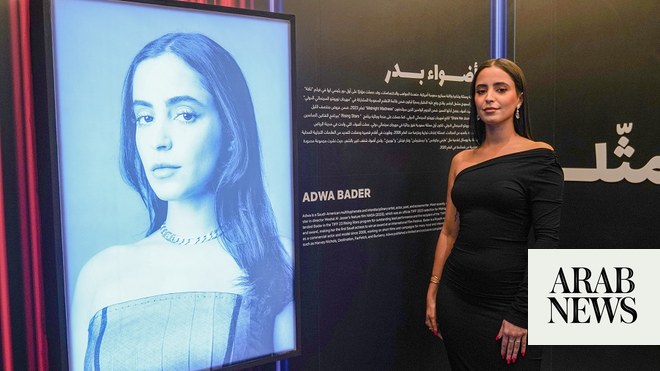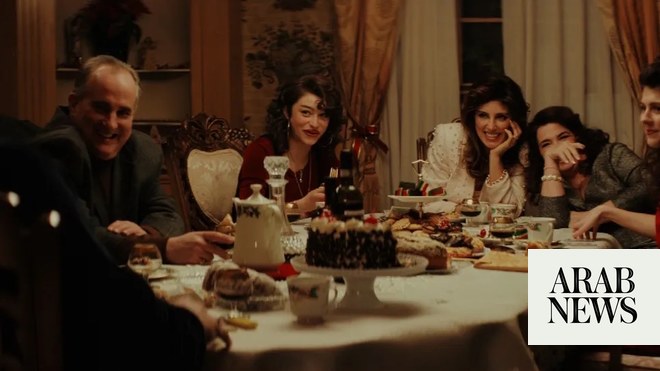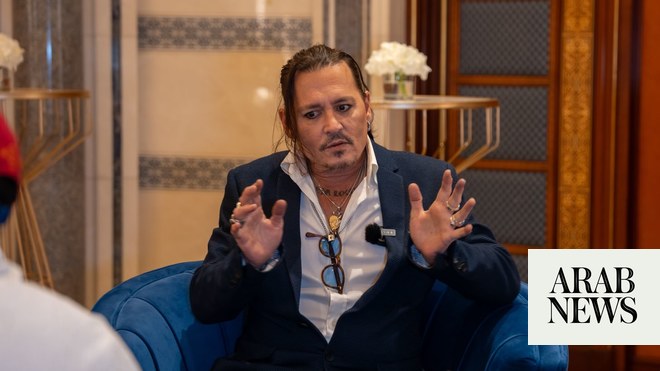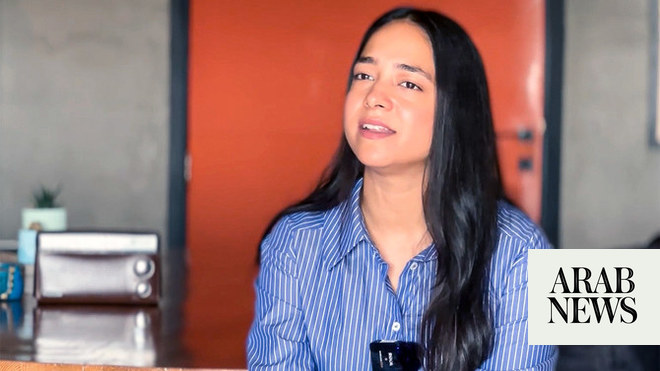
DUBAI: Here are just a few of the features from Arab filmmakers showing at this week’s Red Sea International Film Festival, which runs from Dec. 1-10 in Jeddah.
For the latest updates, follow us on Instagram @arabnews.lifestyle
‘A Gaza Weekend’
Director: Basil Khalil
Cast: Stephen Mangan, Loai Noufi, Mouna Hawa, Adam Bakri
British-Palestinian filmmaker Basil Khalil’s debut feature has been eagerly awaited by cinema lovers following the success of his smart, satirical short “Ave Maria,” which was nominated for an Oscar in 2016. Judging by early reviews, Khalil has delivered. The film is set during a viral pandemic unleashed on Israel after a security lapse at an infectious-disease lab, but was reportedly in development before COVID-19 brought unwelcome topicality to the subject. Michael, an English journalist, is trapped in the country, but is offered an escape route into Gaza — ironically now the safest place in the area, as no one can officially get in or out — by two Palestinians, Waleed and Emad, who are aspiring, though untalented, people smugglers. But Michael refuses to leave without his girlfriend, the uptight Keren. That complicates things, since Keren is an Israeli whose presence could get them all killed. While the couple hide in Waleed’s basement, Keren’s incessant complaining drives Waleed’s wife Nuhad — clearly smarter than her bumbling husband — to assist their escape, against her better judgment, all while evading the scrutiny of Hamas.
‘Raven Song’
Director: Mohammed Al-Salman
Cast: Asem Alawad, Ibrahim Khairallah, Abdullah Aljafal
Al-Salman’s debut feature has been selected as Saudi Arabia’s entry to next year’s Oscars. It’s a comedy-drama about 30-year-old Nasser — a young man who feels his life is drifting and who struggles to connect with his father. But when Nasser is diagnosed with a brain tumor, and scheduled to undergo a potentially fatal operation, he finds new purpose — particularly when he becomes enthralled by a beautiful but mysterious woman. Determined to win her heart, he turns to his friends for advice. That advice is generally terrible, but Nasser accepts a challenge to woo her by singing her a love poem.
‘Nezouh’
Director: Soudade Kaadan
Cast: Kinda Alloush, Hala Zein, Samer Al-Masri, Nizar Alani
The acclaimed Syrian filmmaker’s latest feature picked up the Audience Award at the Venice Film Festival for its moving portrayal of a 14-year-old girl and her family torn between leaving their home in Damascus and becoming refugees, or staying where they ‘belong’ (as Zeina’s father Motaz argues). Zeina’s mother is concerned not only about the family’s physical safety, but also the prospect of Zeina being married off to a soldier. The family’s worries only increase when a missile rips a hole in their roof, but when a rope is mysteriously lowered into the hole, Zeina is introduced to a world of new possibilities. “Most of the refugee films about Syria were either trying to present us as victims or heroes, in a black-and-white narrative,” Kaadan said in promotional material for the movie. “But of course, we are neither one nor the other, like any human being. In all my films, I want the audience to feel that Syrian refugees are their equals. (This) could be any family around the world who is facing a dilemma of whether to stay or leave everything behind.”
‘Harka’
Director: Lofty Nathan
Cast: Adam Bessa, Salima Maatoug, Najib Allagui, Ikbal Harbi
Billed as “an impassioned plea for social justice,” Nathan’s debut feature wowed critics at Cannes, with Adam Bessa picking up a Best Performance award in the festival’s Un Certain Regard section. Bessa plays Ali, a street vendor in Sidi Bouzid, the Tunisian city where another street vendor, Mohammed Bouazizi, set himself on fire in 2010 and started the Jasmine Revolution. Ali continually risks his life heading into the desert to buy the gasoline he sells on the black market, only for the police to extort most of his profits. Already in debt since the death of his father, and with his two younger sisters to provide for, Ali turns to his emotionally distant brother for help.
‘Dounia and the Princess of Aleppo’
Directors: Marya Zarif, André Kadi
Voice cast: Rachaf Ataya, Elsa Mardorissian, Manuel Tadros, Raïa Haidar
Zarif and Kadi’s feature is clearly designed to appeal to kids with its simple-but-striking animation, but will, as Screen Daily noted in its review, likely “prove to be a disarmingly potent proposition for adult animation fans also.” Six-year-old Dounia is forced to leave her home in Aleppo when her father is arrested in the middle of the night. Her mother died when Dounia was a baby, so the girl is accompanied by her grandparents. Through them, she connects to her homeland’s culture, particularly music and cooking, and through the five nigella seeds her grandma gives her as her journey as a refugee begins, her imagination runs free, connecting her with a character from stories her father used to tell her.
‘The Blue Caftan’
Director: Maryam Touzani
Starring: Saleh Bakri, Lubna Azabal, Ayoub Messioui
The Moroccan filmmaker’s latest feature focuses on husband and wife Halim (Saleh Bakri) and Mina (Lubna Azabal), a middle-aged couple who run a traditional caftan store in one of Morocco’s oldest medinas. Struggling to maintain their livelihood, they hire a talented young man named Youssef to help out. His arrival has a profound effect on the couple’s relationship, with Halim, in particular, forced to confront, and accept, his true self. The British Film Institute hailed the movie as “an emotionally complex, richly empathetic depiction of a partnership sustained through storms and challenges.”
‘Ashkal’
Director: Youssef Chebbi
Cast: Fatma Oussaifi, Mohamed Grayaa, Rami Harrabi
Chebbi’s first solo feature starts out as a police procedural, but develops into something much weirder with supernatural elements. Set in Tunis’ Gardens of Carthage — a development project put on hold during the 2011 revolution and still unfinished — it focuses on detectives Fatma and Batal as they investigate the discovery of the burned corpse of a caretaker, under pressure from their bosses to label the case a suicide. When a similarly burned body — this time of a young maid — is found, witnesses tell them that a man with a “burning hand” is responsible.












